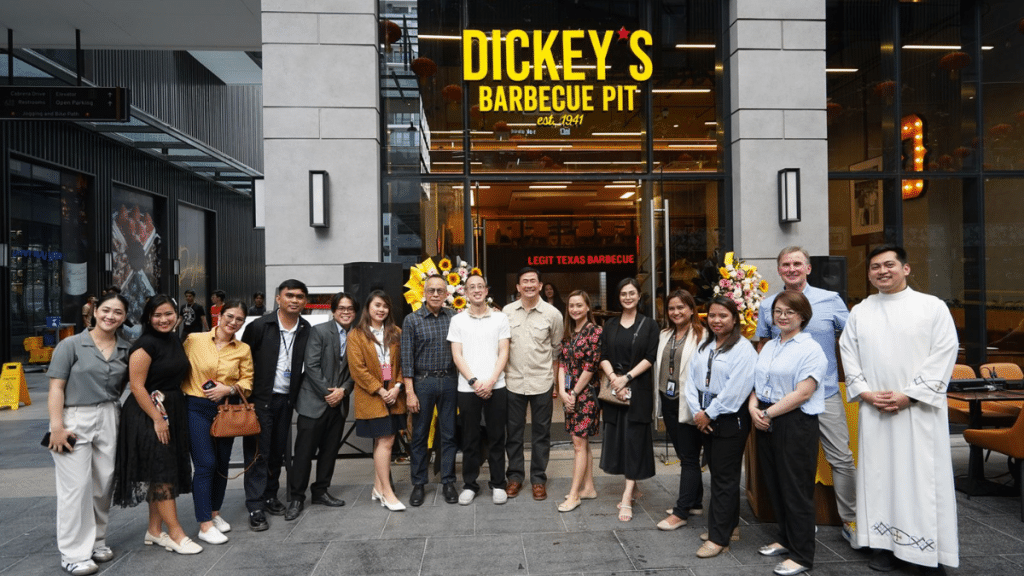When Roland Dickey Jr. took the reins of Dickey’s Barbecue Pit in 2006, he inherited more than just a family business—he inherited a legacy of authentic Texas barbecue, community connection, and entrepreneurial spirit. Founded in 1941 by Travis Dickey in Dallas, Texas, Dickey’s Barbecue Pit was already a beloved local institution. But under Roland’s visionary leadership, the company transformed into the largest barbecue franchise in the world, expanding from 20 locations to over 550 in less than two decades.
This growth wasn’t accidental. It was the result of strategic foresight, relentless innovation, and a deeply rooted respect for the brand’s heritage. In this article, we explore how Roland Dickey Jr. turned a regional gem into an international powerhouse—and the lessons entrepreneurs and franchisees can learn from his journey.
Laying the Foundation: Respecting the Brand’s Roots
Every successful expansion begins with a strong foundation. For Roland, that meant doubling down on what made Dickey’s special: authentic, slow-smoked Texas-style barbecue served in a welcoming, family-friendly environment. Rather than dilute the product for the sake of growth, Roland emphasized quality and consistency across all
new locations. This dedication to the brand’s core identity helped preserve customer trust and loyalty throughout the expansion.
“We’re not selling fast food. We’re selling real food made by real pitmasters,” Roland has often emphasized. This commitment to authenticity set Dickey’s apart in a competitive fast-casual market.
Strategic Franchising: Empowering Owner-Operators
Franchising was the engine behind Dickey’s meteoric rise. But Roland took a unique approach—focusing on partnerships with hands-on, local owner-operators rather than corporate conglomerates. His belief was simple: franchisees who are emotionally and financially invested in their restaurants are more likely to uphold the brand’s values.
To support this model, Roland streamlined the onboarding process for new franchisees and developed a comprehensive training program at Barbecue University, Dickey’s own franchisee training school. New owners learned not just how to run a restaurant, but how to build a community hub that mirrored the original Dickey’s in Dallas.
Innovation in Technology and Operations
Scaling a business to numerous locations requires more than passion—it demands operational excellence. Recognizing this, Roland spearheaded the development of “Smokestack,” Dickey’s proprietary enterprise management system. Smokestack integrates point-of-sale, inventory, payroll, and customer feedback systems into one seamless platform.
This technology has empowered franchisees to run their businesses more efficiently while giving corporate HQ access to real-time performance data across all locations. In 2023, Dickey’s was awarded the Franchise Innovation Award for its use of technology in optimizing operations.
Another key move was the development of a USDA-inspected production facility and logistics system, which ensured consistent quality of meats and sides across all locations. By vertically integrating its supply chain, Dickey’s was able to maintain high standards while minimizing costs—an advantage many competitors lacked.
Brand Expansion and Global Footprint
While Roland grew the brand nationally with relentless energy, his eyes were always on the global market. Dickey’s has now opened locations in countries like Singapore, Japan, the UAE, and the Philippines. International franchising brought new challenges— cultural adaptation, new regulatory environments, and real estate strategy—but Roland approached them with the same focus on authenticity and local partnership.
Instead of drastically altering the menu, Roland chose to educate new markets on the heritage of Texas barbecue. Local partners were trained to use Dickey’s smoking techniques and recipes, preserving quality while creating new avenues for cultural exchange.
Adapting Through Crisis: The COVID-19 Pandemic
Like all restaurant operators, Roland faced a massive test during the COVID-19 pandemic. But Dickey’s adapted quickly, pivoting to a digital-first strategy that included online ordering, third-party delivery, and curbside pickup. These changes helped the
brand not only survive but thrive—digital sales increased by over 200% compared to pre-pandemic levels.
Additionally, the company rolled out new family packs, contactless catering options, and neighborhood marketing initiatives to keep the brand relevant and supportive during uncertain times. Roland’s steady leadership during this crisis further solidified his reputation as a resilient and innovative CEO.
Community and Family: The Heart of the Brand
Despite all the growth and technological advancement, Roland has always emphasized the importance of community. Dickey’s locations often host fundraisers, sponsor local events, and partner with schools and nonprofits. Roland has said that each restaurant should feel like “a neighbor’s backyard barbecue.”
He also remains closely connected to his family’s legacy. Roland’s father, Roland Dickey Sr., remains a trusted advisor, and the family’s influence is felt in every aspect of the brand—from the recipes to the values it promotes.
Lessons for Entrepreneurs and Franchisees
Roland Dickey Jr.’s story is not just one of business success—it’s a blueprint for scalable, values-driven entrepreneurship. His approach offers several key lessons:
1. Stay Authentic: Even as you scale, never lose sight of what makes your brand special.
2. Empower Your Partners: Support franchisees with training, tools, and trust. 3. Innovate Strategically: Use technology not as a gimmick, but as a way to enhance operations.
4. Lead Through Adversity: In challenging times, bold adaptation can turn crisis into opportunity.
5. Build Community: A business rooted in community values will foster lasting loyalty.
Conclusion: A Modern Franchise Icon
Roland Dickey Jr. transformed Dickey’s Barbecue Pit from a beloved Texas staple into a globally recognized franchise without sacrificing the heart and soul of the brand. Through strategic franchising, operational innovation, and a deep respect for tradition, he has set a new standard in the fast-casual restaurant industry.
As Dickey’s continues to grow, Roland’s influence remains unmistakable—whether it’s in a small-town pit in Texas or a high-rise storefront in Tokyo. His story is a testament to
what’s possible when heritage meets vision, and when leadership is defined not just by expansion, but by purpose.
